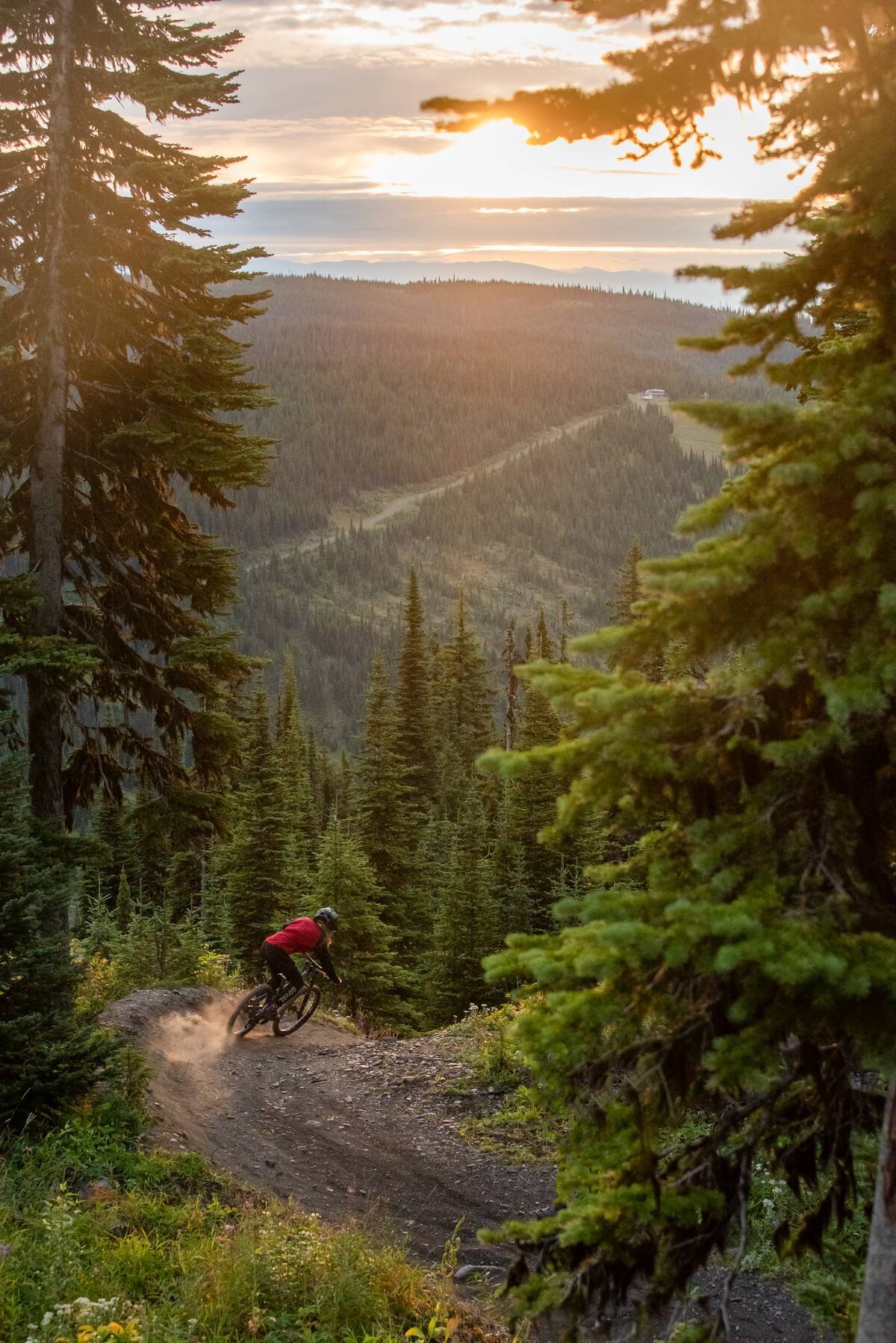
Resources
Welcome to our Resources hub. We have compiled some links and resources we’ve found to be helpful for our members and others in the outdoor recreation sector.
Image credit: Destination BC | Cristina Gareau
The Outdoor Recreation Council publishes reports and information and hosts events and webinars to educate the public and our members about issues and opportunities facing the outdoor recreation community.
If you are looking for information on funding, please visit our Grants & Funding page.
Subscribe to our monthly newsletter
ORCBC Publications and Resources
Best practices guidelines & toolkits
Outdoor Recreation for Community and Economic Development: A Guidebook for Rural BC Communities (2025) NEW!
Outdoors for All: An Inspiration Guide for Creating Welcoming Outdoor Recreation Spaces (2025)
Conducting and Using Visitor and Recreational User Research (2024)
Guidance Toolkit for Engagement with Indigenous Communities (2024)
Trail Development Guidelines to Minimize Disturbance to and Conflict With Large Carnivores (2023)
Best Practices for Developing Public Trails on Private Land (2022)
Working in a Good Way (2019).
Reports
The Impacts of Outdoor Recreation in Rural B.C. Communities (2023)
Wild Places and Green Spaces: A Citizen’s Guide to Proving Public Access - published by Environmental Law Clinic at the University of Victoria (2022)
Enhancing Public Access to Privately Owned Wild Lands – published by Environmental Law Clinic at the University of Victoria (2016)
Trail Fund Recommendations – Report to the Provincial Trails Advisory Body (2020)
Research summaries
How Being Active in Nature Supports our Physical and Mental Health (2020)
How Amenity Migration is Reshaping BC’s Rural Landscape (2020)
Polls
Trails and outdoor recreation in BC (Ipsos 2024)
Trails and outdoor recreation in BC (Ipsos 2023)
Trails and outdoor recreation in BC (Ipsos 2022)
Annual reports
2022-23 Annual Report (2023)
2020-21 Annual Report (2021)
2019-20 Annual Report (2020)
Event reports
Other resources
ORCBC Webinar Recordings
How to win an Outdoor Recreation Fund grant (December 2025)
Integrating archaeology and Indigenous partnerships in trail planning (November 2025)
Designing trails for people and wildlife (November 2025)
Everyone is a river steward (September 2025)
Trail planning: best practices, challenges, and opportunities (August 2025)
Innovative nonprofit funding models (July 2025)
An introduction to the ORCBC’s new guidebook to building thriving outdoor recreation communities (May 2025)
Wildfire resilience: How outdoor recreation groups can lead in mitigation and preparedness (April 2025)
Recreation and Indigenous tourism (March 2025)
How to make the outdoors more welcoming to all (January 2025)
Indigenous Protected and Conserved Areas (November 2024)
Using the findings from DIY trail user and visitor research (October 2024)
DIY trail user and visitor research (September 2024)
Trail network planning (August 2024)
Recreation ecology (July 2024)
Recreation’s role in ensuring tourism is a force for good (May 2024)
The science and art of building volunteer partnerships (April 2024)
Reconciliation and Recreation: Advice and lessons from outdoor groups (March 2024)
The "paradigm shift" in landscape planning and management (February 2024)
Reconciliation and recreation: Indigenous perspectives (January 2024)
Improve your volunteer recruitment and engagement (December 2023)
How to make stewardship part of your organization’s mission (November 2023)
BC’s outdoor recreation economy (October 2023)
Tips to promote your recreation organization through social Media (September 2023)
The impacts of outdoor recreation in rural BC communities (July 2023)
Forest landscape planning and recreation (June 2023)
Fostering collaborative efforts and great impact through alliance-building (April 2023)
Recreation and stewardship: The Kwantlen story (March 2023)
Trails for Us: Learn how trails benefit local communities and how you can make the case for yours (March 2023)
Putting in the work - sharing lessons on building relations with Indigenous People (December 2022)
Indigenous land protocols as a guide for recreation (November 2022)
Liability insurance for recreation groups (October 2022)
Management of trails on private land (September 2022)
Risk management, liability and waivers (August 2022)
Cultivating responsible recreation practices (July 2022)
Intro to Birding (with Birds Canada - April 2022)
Fundraising Strategies (with The Good Partnership - February 2022)
Resource Roads in BC (with Province of BC - December 2021)
Modernized Land Use Planning & BC’s Cumulative Effects Framework (with Province of BC - July 2021)
Building a BC Trail Fund: Current Efforts (June 2021) use passcode: m?9Dab17
Managing Forest Recreation Values (with Forest Practices Board - May 2021)
Decolonizing Outdoor Spaces (co-hosted with the Wilderness Committee - May 2021)
Legislation & Policies
Forest and Range Practices Act: FRPA is the governing Act for the forestry industry’s practices. It outlines legal objectives for the management of forests and range in the province including concerns about adverse impacts to objectives such as cultural heritage resources, soils, water, fish, wildlife, biodiversity, timber, forage, recreation, resource features, and visual quality. Recreation is part of the Forest and Range Practices Act (FRPA) framework and makes up one of the 11 FRPA values for which government may set objectives to manage and protect under the act. FRPA defines recreation resources broadly as recreational features, scenic or wilderness settings that have recreational significance, and recreation facilities. These objectives are established through regulation and land use plans.
Motor Vehicle Prohibition Regulation: The Motor Vehicle Prohibition Regulation restricts the use of vehicle for the purpose of hunting in the specified areas. The enabling statute for this Regulation is the Wildlife Act, RSBC 1996, c 488.
Off-Road Vehicle Act: This Off-Road Vehicle Management Framework promotes the safe and responsible use of ORVs on Crown land. More info here about ORV regulations.
Occupiers Liability Act. Liability associated with trails in BC is determined by the Occupier’s Liability Act. The Act was amended in 1998. A primary objective was to grant protection from liability to occupiers, providing access to land for recreation trails.
E-bike policy (recreation trails). Ministry of Forests, Lands, Natural Resource Operations and Rural Development (April 2019).
E-bike policy (BC Parks). Ministry of Environment and Climate Change Strategy ( August 2019).
Mountain Bike Policy. Ministry of Lands and Natural Resource Operations (2013).
Provincial Trail Strategy
Trails Strategy for BC: The trails strategy provides the framework, principles, and guidance necessary to develop a world-class trails system for BC. Overall, this framework establishes clear strategic direction for planning, developing, maintaining, managing, marketing and using an integrated network of trails in BC. The trail strategy underwent a comprehensive review in 2020-21 and the Provincial Trails Advisory Body presented its recommendations to the provincial government in May 2021.
Local & Regional Trail Strategies
Management & Planning
Managing Forest Recreation Resources Values under FRPA: The Forest Practices Board (FPB) released a special report in May 2021 that identified issues with the management of forest recreation values on public lands outside of the provincial park system.
Tactical Forest Planning: The Missing Link Between Strategic Planning and Operational Planning in BC: FPB outlined the advantages and principles of tactical forest planning (July 2019).
Resource Roads: Resource roads are constructed to develop, protect and access natural resources, but also offer opportunities to access outdoor recreation opportunities. Province of BC.
Access Management in British Columbia: Issues and Opportunities. FPB special report (April 2005).
Access Management and Resource Roads: 2015 update. FPB special report (April 2015).
Modernizing Land Use Planning in BC: Modernized land use planning is led by the B.C. government in partnership with Indigenous governments and with engagement of communities, local government, industry and other stakeholders. Land use planning will focus on priority areas in the province to resolve current land use and resource management challenges. Fact sheet (June 2019)
Socio-economic and Environmental Assessment Guidance for Modernized Land Use Plans: A guidance document that describes a consistent method for conducting socio-economic and environmental assessments (SEEA) in the context of modernized land use planning in B.C.
Memo to RSTBC about liability issues for partnership groups (2015)
Outdoor Conduct & Ethics
Leave No Trace Canada and Leave No Trace US: : A framework for outdoor recreation decision-making that is summarized in the seven principles.
Tread Lightly: An alternative US-based program that offers motorized and non-motorized outdoor ethics training and education materials.
Marine Trail Code of Conduct: BC Marine Trails released a new code of conduct for marine trails in 2021.
Trail User’s Etiquette: ORCBC and Horse Council BC have collaborated on trail etiquette advice for different trail users.
Advocacy & Research
Health Benefits of Non-Motorized Outdoor Recreation: A Summary of Published Findings. Federation of Mountain Clubs in British Columbia (2014).
Non-Motorized Outdoor Recreation in British Columbia in 2012: Participation and Economic Contributions. Federation of Mountain Clubs in British Columbia (2014).
2009/10 Outdoor Recreation Study: BC Resident Participation. Ministry of Jobs, Tourism and Skills Training (2013).
The Social and Economic Impacts of BC Recreation Sites and Trails. Ministry of Forests, Lands and Natural Resource Operations (May 2011).
Regional Outdoor Recreation Opportunities Study. Phase One Demand Analysis Report. Metro Vancouver Regional District (March 2011).
National, Provincial, and Territorial Economic Impacts of ATVs and Side-By-Sides. The Canadian Off-Highway Vehicle Distributors Council (2015).
Accessibility Survey: The Gabriola Land & Trails Trust (2019)
Outdoor Recreation Economic Impact Analysis in the Fraser Valley Regional District (2019)
Diversity & Inclusion
Access BC: A Spinal Cord Injury BC initiative, Access BC features in-depth accessibility specifications for a number of audited area, as well as virtual tours and videos, suggested driving routes and maps, accessible tourism tips.
First Nations Engagement & Reconciliation
Working in a Good Way. Outdoor Recreation Council of BC (May 2019).
Truth & Reconciliation Commission Summary Report. Truth and Reconciliation Commission of Canada (2015).
Both the Government of Canada and the BC Government have adopted the United Nations Declaration on the Rights of Indigenous Peoples (UNDRIP). Read more about BC’s implementation of UNDRIP.
The Province has adopted a five-year action plan that will guide the implementation of BC's Declaration on the Rights of Indigenous Peoples Act.
Consulting with First Nations – A BC Government guide.
The Shuswap Trails Alliance made a significant effort to engage the Secwepemc peoples in developing their trail strategy. Read more here.
First Peoples’ Cultural Council has created an online, interactive map that divides the province up into Indigenous territories, including some areas where there is overlap, with sections featuring language, art and culture.
British Columbia Assembly of First Nations has created an interactive map showing the location of First Nations communities in BC.
Native-Land.ca has created a resource on territory acknowledgements.
Tourism
Research Guide for Tourism Operators: This guide is intended to help BC tourism suppliers conduct tourism research to strengthen and grow their businesses.
Strategic Framework for Tourism in BC: The province released in early 2019 the 2019-2021 tourism strategic framework sets out a vision for the tourism sector. One concern for the outdoor recreation community is how tourism will be managed to respect the natural environment and the outdoor recreation experience.
Adventure Tourism Strategy for BC (2017): a guide for the responsible and collaborative development of adventure tourism in BC in the coming years.
Active Transportation
Move Commute Connect – B.C.’s Active Transportation Strategy (2019): The Province has created Move, Commute, Connect to make active transportation options more convenient, available and affordable and to put B.C. on a path to lower greenhouse gas emissions.
British Columbia Active Transportation Design Guide (2019): Recommended policies, specifications, standards and guidelines to be followed in the development of active transportation infrastructure in British Columbia.
B.C. Active Transportation Infrastructure Grants Program: The B.C. Active Transportation Infrastructure Grants Program offers two grant options for Indigenous governments and local governments, including municipalities, regional districts and Islands Trust.
Public Health & Active Living
Active People, Active Places – BC’s Physical Activity Strategy (2015): Active People, Active Places is designed to guide and stimulate co-ordinated policies, practices and programs in physical activity that will improve the health and well-being of British Columbians, and the communities in which they live, learn, work and play.
Send a note to info@orcbc.ca if you have suggestions for additional resources.
